“Women’s bodies have their own wisdom, and a system of birth refined over 100,000 generations is not so easily overpowered.”
—Dr. Sarah J. Buckley
“Whenever and however you give birth, your experience will impact your emotions, your mind, your body and your spirit for the rest of your life.”
—Ina May Gaskin, CPM
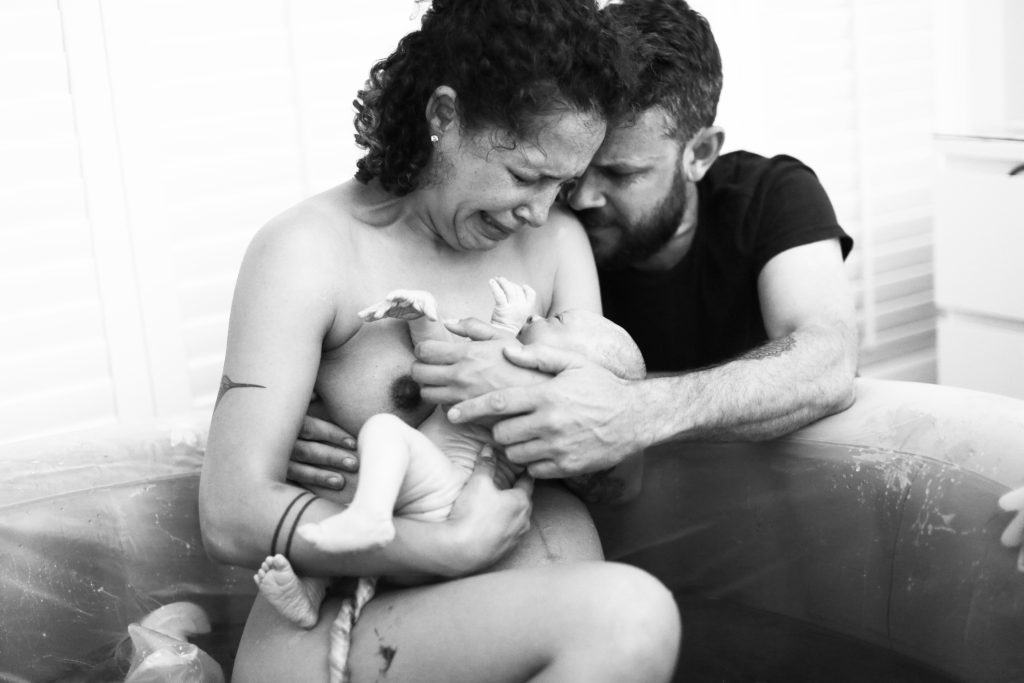
Pregnancy and birth deserve honor as major life events and rites of passage. Your and your baby’s birth experience can have tremendous impact on all facets of your life going forward, so having your best possible birth cannot be overvalued. For many families this means giving birth at home with the care of a midwife.
Research shows that homebirth with a trained midwife is a safe option for low-risk pregnancies (see Resources). Large prospective studies have shown that rates of interventions are far lower for homebirths compared to births in hospitals, without any statistically significant increase in negative outcomes.
In the U.S., low-risk birthing persons who planned a homebirth had a cesarean rate of just 5.2%, compared with a 31% cesarean section rate in the hospital. Homebirth is also associated with dramatically lower rates of induction, episiotomy, infection, and preterm birth, as well as, much higher rates of breastfeeding/chestfeeding and higher overall birth satisfaction.
“Experiences have clearly shown that an approach which ‘de-medicalizes’ birth, restores dignity and humanity to the process of childbirth, and returns control to the mother is also the safest approach.”
—Michel Odent, MD, OB/GYN
Additional benefits of homebirth with a skilled midwife:
- Avoid unnecessary interventions and strict timetables
- Choose who you want with you at your birth (including your baby’s siblings)
- Labor undisturbed and move freely as you choose
- Eat and drink whatever you crave to keep up your strength and energy
- Stay in your own biologically compatible environment
- Labor in water and/or have a water birth
- “Catch” your own baby or have a loved one “catch”
- Give your baby the full benefits of delayed cord clamping
- Enjoy bonding with your baby after it’s born, without unnecessary interruptions
At Home Midwifery Care provides complete in-home primary care for healthy people throughout the childbearing year: from preconception to pregnancy and birth, and through the first six weeks postpartum, including care of the newborn, family planning, and routine well-body reproductive care.
In addition to standard prenatal laboratory testing and ultrasound referrals, I offer nutritional counseling and holistic preventative care to support healthy pregnancy and childbirth, as well as alleviate common pregnancy discomforts. I work with a network of other care providers who can provide consultation and collaboration when needed.
My core philosophy is a deep trust in and reverence for our bodies’ natural processes and respect for you as the expert of your own body and as your baby’s primary care provider. I honor diverse family structures and strive to offer care rooted in shared decision making, informed choice, and empowerment of the birthing family.
Prenatal Care
“You feel safe in your house. You are in charge in your house. We come to your house as guests and we work for you.“
—Grand Midwife Umm Salaamah “Sondra” Abdullah-Zaimah

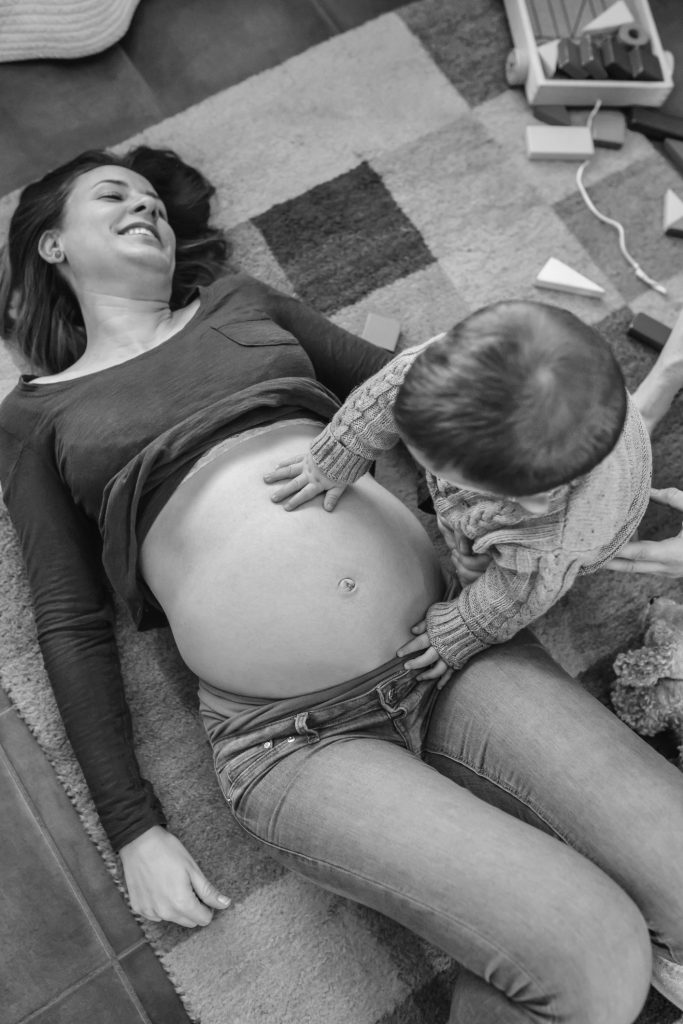
One-on-one prenatal care, in the comfort and privacy of your own home, helps build a relationship of trust, respect, and open communication between midwife and birthing person/family. That relationship, combined with traditional midwifery skills and excellent clinical care, is the foundation of safe homebirth.
We meet monthly until 28 weeks of pregnancy, every two weeks from 28 to 36 weeks gestation, and then weekly until birth—more often if needed. I arrive fully-equipped with all the tools needed to provide full-scope prenatal care in your home.
Prenatal visits are typically an hour long and include: a physical checkup to assess the health and well-being of both you and your baby; holistic nutritional, educational, and emotional support tailored to your individual needs; lab testing, as needed or desired; and ample time to thoroughly discuss all your questions. Family participation, including that of siblings, is always encouraged.
Labor and Birth
“Being a guardian of birth means respecting and supporting the innate physiological processes and biological imperatives of both mother and baby.”
—Barbara Harper, Midwife, Founder of Waterbirth International

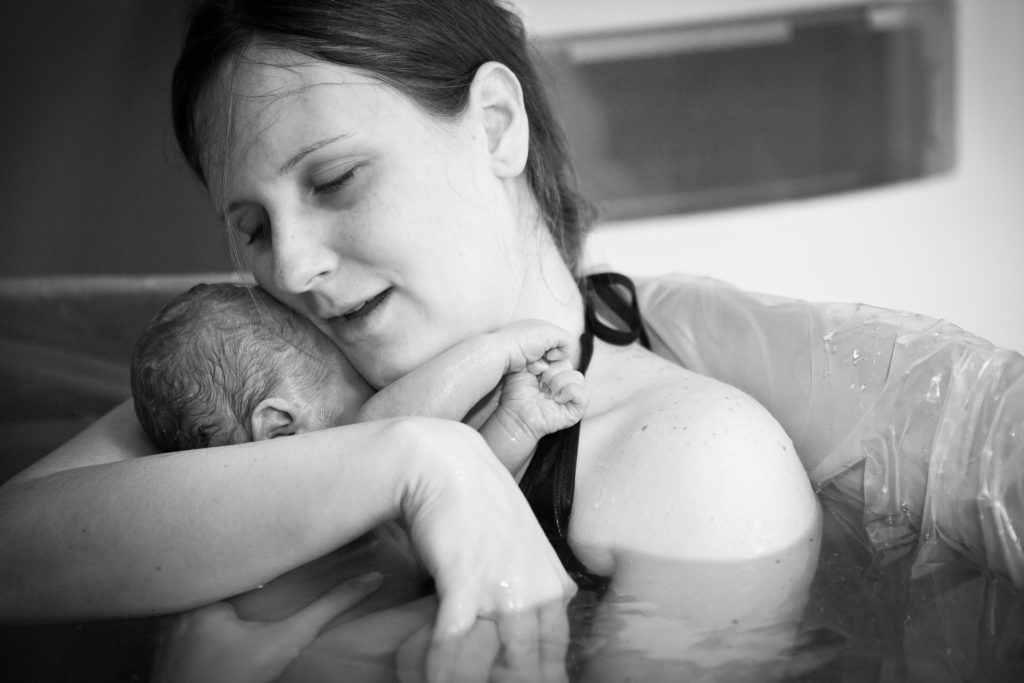
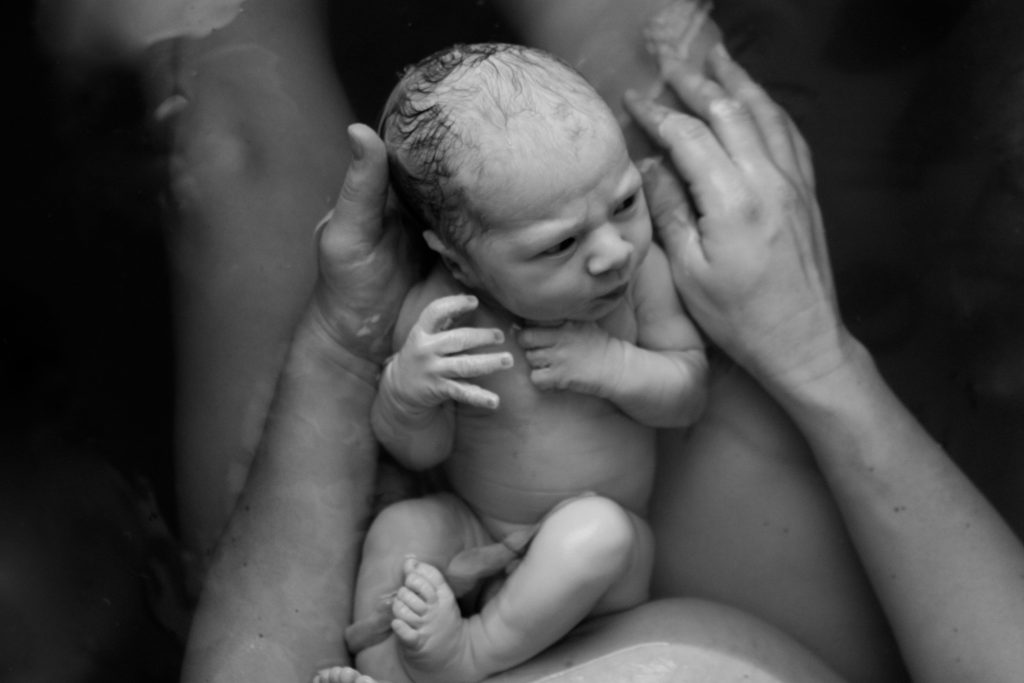
Midwives are experts in physiologic (natural) birth—birth via the body’s own innate power. As a Licensed Midwife, I maintain certification in CPR/BLS for Healthcare Providers and in Neonatal Resuscitation (NRP) and am legally licensed to carry all medical equipment and medications necessary to safely manage low-risk deliveries and the most common concerns at home, including: fetal heart monitors (ultrasound Dopplers), oxygen, resuscitation equipment, emergency medications to stop bleeding, herbs, homeopathics, IV supplies, suturing equipment with local anesthetic, and more.
When your labor begins, we stay in communication and I monitor your and your baby’s vital signs at appropriate intervals, provide physical and emotional support and/or privacy as desired, and utilize my skills and expertise to help keep the birth normal, healthy, and progressing naturally. As you get closer to birthing your baby, I call in a second midwife or qualified birth assistant to assist during the birth and the immediate postpartum.
Your baby remains with you, skin-to-skin, after it is born. We wait to cut the umbilical cord until it completely stops pulsing—usually after you deliver the placenta. I monitor you and your baby carefully, but unobtrusively, giving as much space as possible for uninterrupted bonding.
After about an hour, a complete head-to-toe newborn exam is done right next to you on your bed, to minimize separation from your baby. Optional vitamin K injection and erythromycin eye ointment are available for baby, when desired.
I continue monitoring you and your baby until satisfied that you are both healthy and stable and that lactation/breastfeeding has been established—typically for 2-4 hours. Before leaving your home, I see to it that you have eaten a good meal, everything is tidied up, and the whole family is settled in bed.
The excellent health of my clients combined with the high quality, preventive care I provide, mean that complications in labor and birth are rare. If a concern begins to develop, it is either addressed skillfully at home or we will discuss the need for transfer to a higher resource setting, as needed. In the case of a transfer of care, I ensure that your hospital provider has all the information needed and accompany you to provide support and guidance.
Postpartum Care
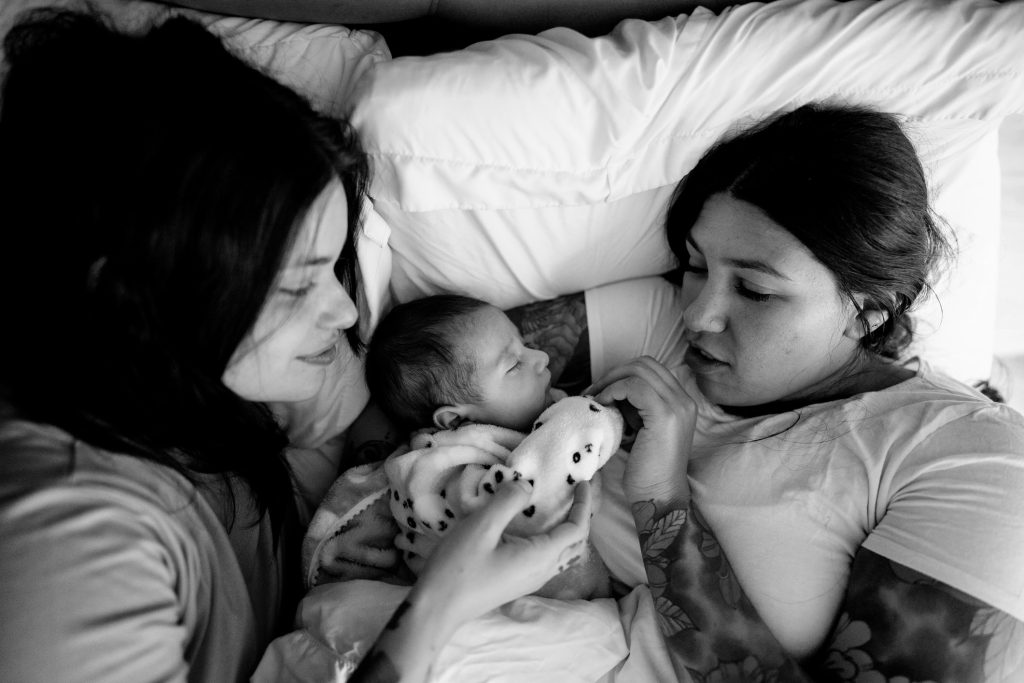
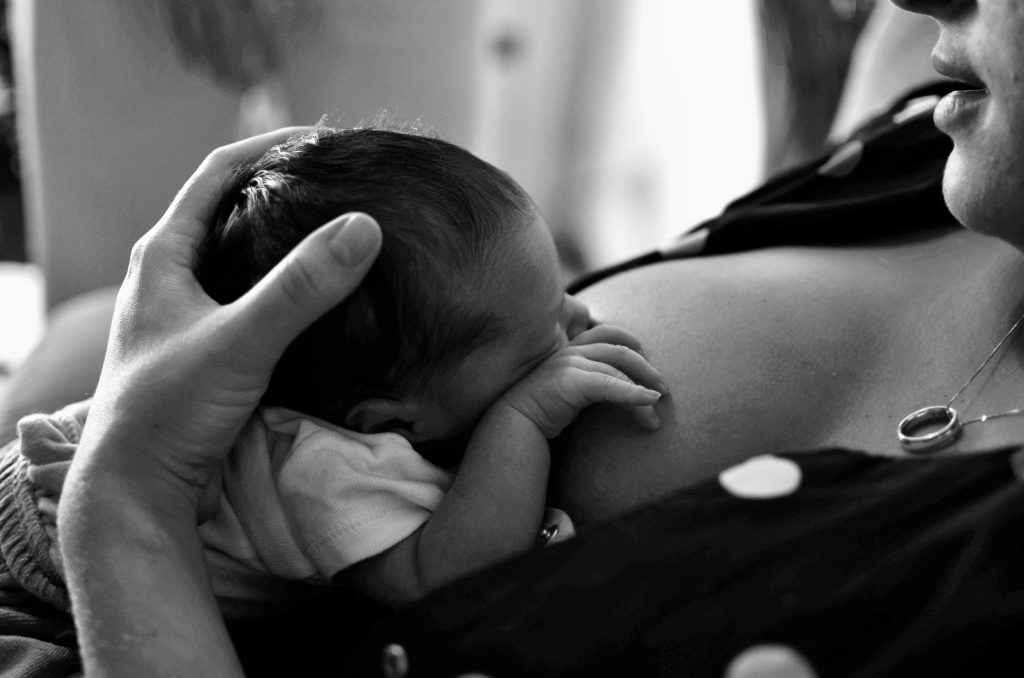
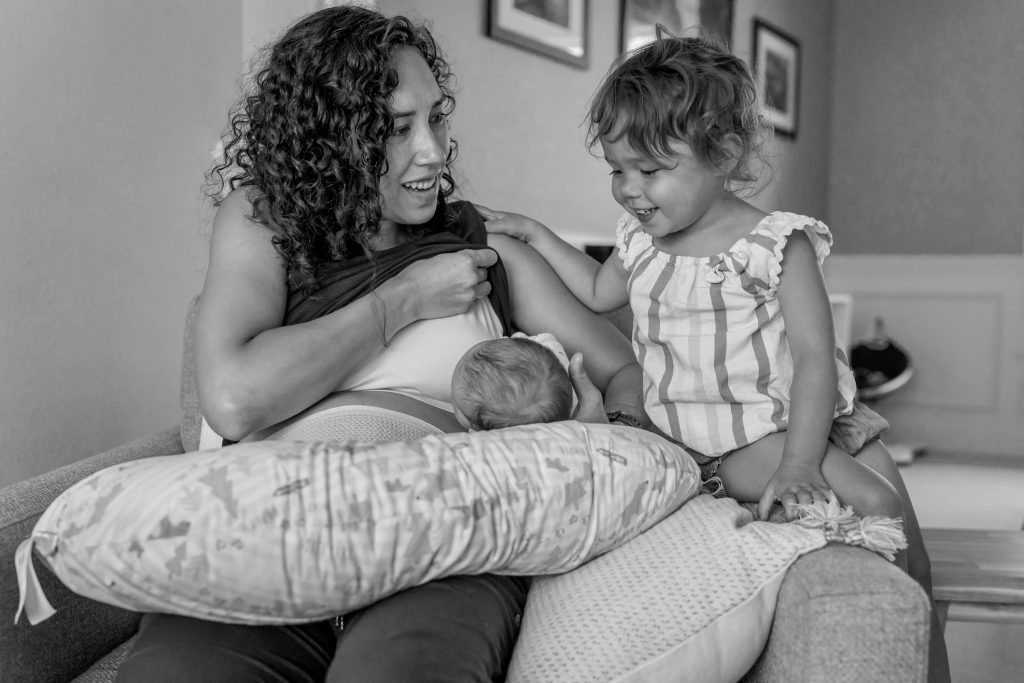
After you give birth, I encourage you to spend a minimum of two weeks cocooned at home, dedicating this brief but precious time to resting, nourishing your body, bonding with your baby, and establishing breastfeeding/lactation. Four to six weeks of postpartum rest is optimal—the traditional “cuarentena.”
To help facilitate this, I provide follow-up care in your home about 24 hours after the birth, then again at 3 days, 1 week, 2 weeks, and 6 weeks—more frequently as needed.
These postpartum visits are an hour long and include:
- Lactation and infant feeding support
- Newborn care instruction
- Infant weight checks & jaundice screening
- Monitoring postpartum bleeding, healing, and general well-being
- Checking vital signs (temperature, blood pressure, heart and respiration rates)
- Newborn Critical Congenital Heart Disease (CCHD) screening
- Performance of the CA Newborn Metabolic Screen (heel-stick test)
- Emotional support and community referrals
- Birth Certificate, Social Security card, and Family Leave paperwork
- Gyn care and discussion of family planning options
As your midwife, I am on-call for you 24/7 for urgent matters and offer unlimited email and phone support throughout the childbearing year.
Fees
At Home Midwifery Care’s package fee for midwifery services includes: comprehensive prenatal care, risk assessment, nutritional counseling, birth preparation, midwife attendance at your labor and birth along with a qualified assistant, standard supplies to be used during labor and birth, a head-to-toe newborn exam, lactation/breastfeeding support, newborn care education, comprehensive postpartum care for the first 6 weeks, family planning consultation, and 24-hour midwife on-call availability for urgent matters and from 37-42 weeks of pregnancy for labor and birth.
This fee does not include: lab fees, ultrasounds, herbs/supplements, a homebirth kit, water birth tub rental, the Newborn Metabolic Screen (heel stick test), Rhogam, fees incurred by seeing physicians or hospitals or from other sources in the event of transfer.
I strive to make midwifery care accessible and am always happy to answer any financial questions you may have in considering a homebirth. Many health insurance plans will reimburse for midwifery services. I work with an excellent insurance biller who can verify your benefit coverage and help you get the maximum reimbursement. Some families use a flexible spending account (FSA), a health savings account (HSA), a Health Share, or a medical loan to pay for part or all of the midwifery care. I offer payment plans, as well as discounts for early pay and for Medi-Cal clients. For more information about my services and fees, please contact me.
Get in touch